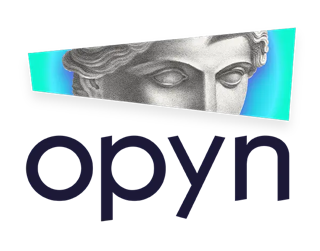
Opyn: Gamma
Opyn builds DeFi native derivatives and options infrastructure that allow users and protocols to buy, sell, and create options, and utilize brand new primitives like squeeth. DeFi enthusiasts and projects alike rely on Opyn’s smart contracts and interface to hedge themselves against DeFi risks and take positions on different cryptocurrencies.
PoC Required
Rewards
Rewards by Threat Level
Rewards are distributed according to the impact of the vulnerability based on the Immunefi Vulnerability Severity Classification System V2.2. This is a simplified 5-level scale, with separate scales for websites/apps and smart contracts/blockchains, encompassing everything from consequence of exploitation to privilege required to likelihood of a successful exploit.
Critical and High severity bug reports must come with a PoC with an end-effect impacting an asset-in-scope in order to be considered for a reward.
Critical smart contract vulnerabilities are further capped at 10% of economic damage, with the main consideration being the funds affected in addition to PR and brand considerations, at the discretion of the team. However, there is a minimum of USD 25 000 for Critical bug reports.
Issues identified in previous audit reports may not be eligible for payout.
To be eligible for reward, impact from table below must be demonstrated where all thefts must be profitable and all freezing must be reasonably priced for the impact.
Payouts are handled by the Opyn team directly and are denominated in USD. Payouts up to USD 100 000 are done in USD, USDC, DAI or ETH.
Program Overview
Opyn builds DeFi native derivatives and options infrastructure that allow users and protocols to buy, sell, and create options, and utilize brand new primitives like squeeth. DeFi enthusiasts and projects alike rely on Opyn’s smart contracts and interface to hedge themselves against DeFi risks and take positions on different cryptocurrencies.
Gamma is a capital efficient option protocol that enables sellers to create spreads and other combinations, trade atomically, flash loan mint oTokens, assign operators to roll over vaults, create perpetual instruments, and more.
Just like Convexity Protocol(Opyn v1), Gamma protocol enables any user to create option tokens, that represent the right to buy or sell a certain asset at a predefined price (strike price) at expiry.
For more information about Opyn, please visit https://www.opyn.co/.
This bug bounty program is focused on their smart contracts and is focused on preventing:
- Loss of user funds staked (principal) by freezing or theft
- Theft of unclaimed yield
- Freezing of unclaimed yield
KYC not required
No KYC information is required for payout processing.
Proof of Concept
Proof of concept is always required for all severities.
Prohibited Activities
- Any testing on mainnet or public testnet deployed code; all testing should be done on local-forks of either public testnet or mainnet
- Any testing with pricing oracles or third-party smart contracts
- Attempting phishing or other social engineering attacks against our employees and/or customers
- Any testing with third-party systems and applications (e.g. browser extensions) as well as websites (e.g. SSO providers, advertising networks)
- Any denial of service attacks that are executed against project assets
- Automated testing of services that generates significant amounts of traffic
- Public disclosure of an unpatched vulnerability in an embargoed bounty
- Any other actions prohibited by the Immunefi Rules
Feasibility Limitations
The project may be receiving reports that are valid (the bug and attack vector are real) and cite assets and impacts that are in scope, but there may be obstacles or barriers to executing the attack in the real world. In other words, there is a question about how feasible the attack really is. Conversely, there may also be mitigation measures that projects can take to prevent the impact of the bug, which are not feasible or would require unconventional action and hence, should not be used as reasons for downgrading a bug's severity.
Therefore, Immunefi has developed a set of feasibility limitation standards which by default states what security researchers, as well as projects, can or cannot cite when reviewing a bug report.


